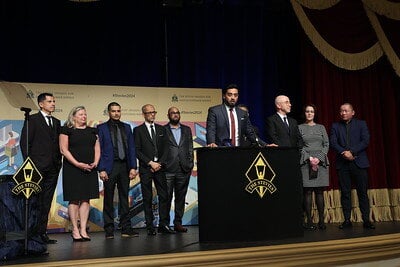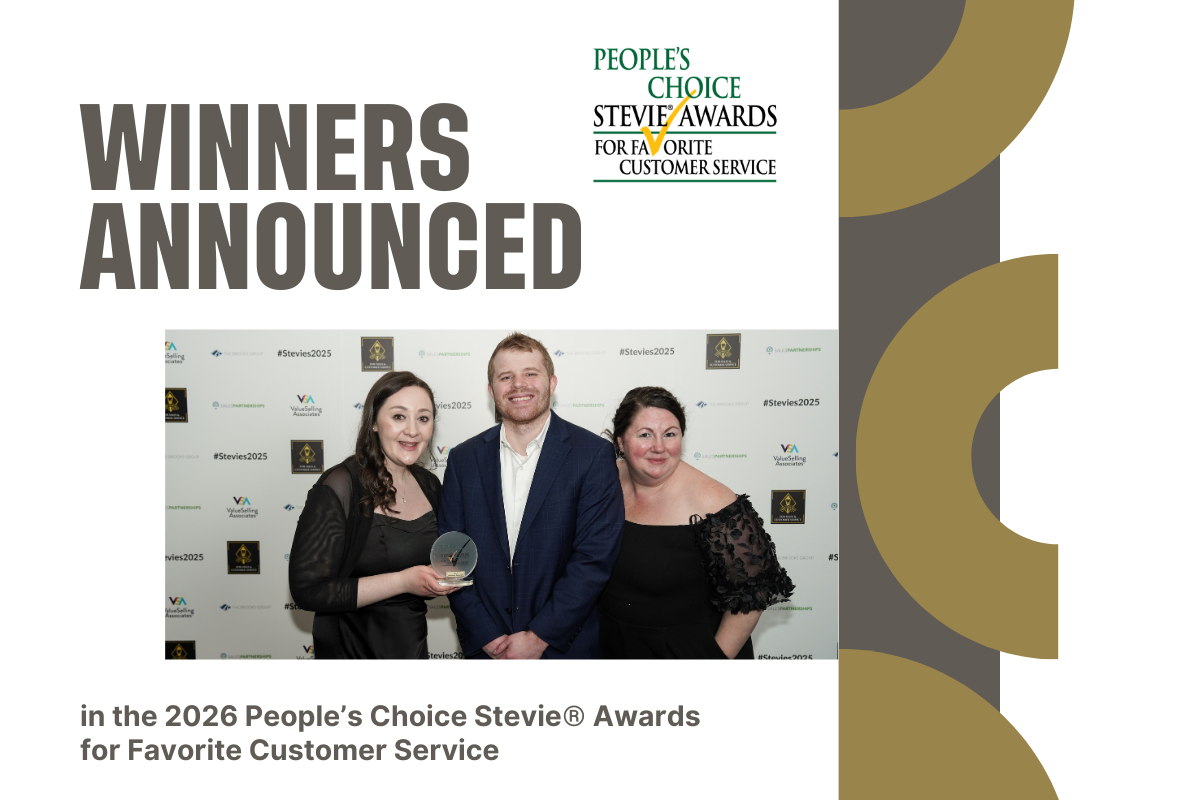Chris Robinson, Managing Director of Boost Marketing, outlines some of the ways that this UK-based international award-entry consultancy helps its clients to select what to enter into an awards competition.
 In a meeting with your CEO it’s agreed that your company will enter one of the Stevie® Awards competitions. Decision made. Your CEO then walks out of the meeting, so now all you have to do is make it happen.
In a meeting with your CEO it’s agreed that your company will enter one of the Stevie® Awards competitions. Decision made. Your CEO then walks out of the meeting, so now all you have to do is make it happen.
A Bigger Decision
Although the initial decision to enter has been made, now you have to make an even more important decision, perhaps the most important one of all when it comes to any awards strategy: You have to decide what your award-worthy story—or as we call it at Boost Marketing, your “awards candy”—is going to be.
For small businesses, the history of the whole business is often the story, so this is not such a hard decision; but for larger, well-established organisations the decision can be a much trickier. Larger organizations will have many individuals, teams, departments, strategies, projects, products, and campaigns, each with their own story to choose from.
Picking the Right Story
Any one of these stories could make a suitable entry, but they may not all be equally likely to win a prestigious award such as a Stevie. Plus, pick the wrong story and you will not just be wasteful of the company’s time, money, and energy, you will also disappoint your CEO when it is not short-listed. And if you are entering on behalf of a client, and the submission goes nowhere after all the hassle of getting that client’s approval, it can actually harm your business relationship.
Make the Extra Effort
Going by gut instinct or by who shouts the loudest are not ideal ways to decide which stories to enter for an award. You’ll need to take a little more care in choosing your best stories. The extra effort will pay big dividends in the long term.
To decide which stories are worth entering into awards and which are not requires a fair and systematic approach that cannot be contested. Such a system should be able to demonstrate clearly that while one person’s pet project may be a no hoper, another lower profile but ingenious story may be a strong contender for awards recognition.
Brainstorming
When we run brainstorming sessions with our clients on what to enter for an award, something that happens time and again is that a story is tabled which, when rated, gets very high marks and goes on to win. Yet at the time of the session, people will say: “I would never have thought of entering that.”
How to Filter Your Choices
There is no one-size-fits-all format for a brainstorming session. You can use anything from post-it notes scattered on a whiteboard to a flip chart. Just remember that Ii doesn’t really matter about the format so long as the session has the following ingredients:
1. Get everyone around the table who might know about the best stories.
2. Before starting the brainstorming process, make sure all the stories are tabled—good and bad—without filtering out anything.
3. Agree on a scoring system that everyone buys into, and then rate each story using this scoring system.
4. Double-check the highest-scoring stories with the group to ensure there is consensus on which stories are chosen.
At this point the most important decision will have been made. Better still, everyone will leave the room happy with this decision.
Two examples of unexpected awards Candy have been a small initiative to help the long-term unemployed get call-centre jobs at a multinational organisation; and a partnership between the regional office of a British company with the local Citizen’s Advice Bureau, both of which were chosen over multi-million dollar corporate projects. Yet neither of these stories had been considered for awards glory beforehand.
Remember: the obvious choices are not always the right choices.
The Final Decision
Having completed the step of deciding what stories to enter into an awards competition, you need to match your best stories against the categories and awards available. The Stevie Awards, for example, offer many categories to choose from across all of their awards competitions. (See the schedule of Stevie Awards competitions in 2013.)
With the Stevie Awards there are a wide variety of categories to choose from, including many new and revised categories for 2013. The Stevie Awards staff are always happy to help with your category selection. You can contact them at help@stevieawards.com.
There are hundreds of other awards and competitions out there for businesses, and you can find a list of most of them on various Boost web pages, but we strongly recommend you start by picking the most suitable categories within the Stevie Awards.
About Chris Robinson
Chris Robinson is Managing Director of Boost Marketing, the world’s first award-entry consultancy, which now has a team of 15 awards-entry consultants based around the world. The Boost website lists awards for the U.S., United Kingdom, Ireland, and New Zealand. Since the company was founded in 2006, Boost Marketing consultants have helped over 200 businesses win over 400 awards.

 If I were to ask you: “Who benefits the most from entering the Stevie Awards?” you would be justified in answering: “The winners, of course.” You might even think it a ridiculous question.
If I were to ask you: “Who benefits the most from entering the Stevie Awards?” you would be justified in answering: “The winners, of course.” You might even think it a ridiculous question.










